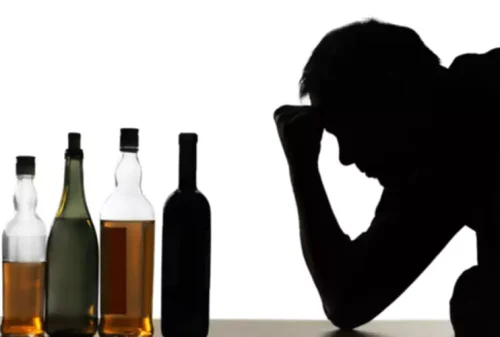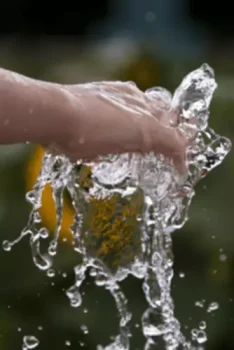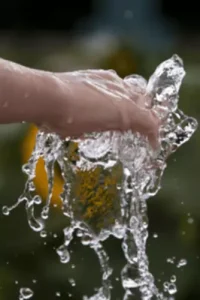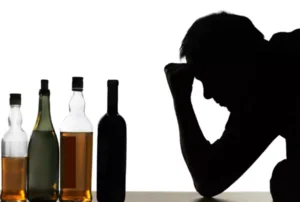
While alcohol consumption is a known risk factor for liver disease, not everyone who drinks alcohol will develop liver disease. The effects of alcohol consumption on the liver depend on factors such as the amount and duration of alcohol use, individual susceptibility, and overall health. Excessive and prolonged alcohol consumption significantly increases the risk of developing liver disease. For example, alcohol intake may be paired with an unhealthy lifestyle and diet, leading to other health issues. Alcohol can also negatively impact on your cardiovascular health and contribute to problems such as hypertension (high blood pressure) or high cholesterol.
What are the first signs of kidney damage from alcohol?

Kidney dietitian Nick McAleer from Royal Devon and Exeter NHS Foundation Trust offers advice about choosing drinks. Regular physical activity helps maintain a healthy weight and can drinking alcohol hurt your kidneys control blood pressure. However, consult a doctor before starting any new exercise program, especially after significant alcohol use. Stopping alcohol consumption is the first step towards recovery. This process can take weeks or months, depending on individual health. Polycystic kidney disease (PKD) is a hereditary condition that leads to cyst formation in the kidneys.
Autoimmune Conditions
- When people consume too much alcohol at once or regularly consume alcohol over time, it alters the structure and function of their kidneys.
- When you drink alcohol, you put toxins into your blood, making your kidneys’ job extra hard.
- For example, a glass of wine would not make a significant impact on potassium.
- Excessive alcohol consumption can damage the kidneys and, consequently, elevate creatinine levels.
- If you struggle with cutting back on alcohol, don’t hesitate to seek help.
Alcohol consumption causes your kidneys to be less efficient at filtering your blood, which can lead to complications with your kidneys and other health issues. Chronic and severe kidney damage caused by long-term alcohol abuse may not be fully reversible. Having said that, quitting alcohol and adhering to medical recommendations can help slow the progression of kidney disease and improve overall kidney health. Early detection and intervention can significantly improve the prognosis of kidney-related issues caused by alcohol consumption.
The Impact of Binge Drinking on Kidney Health
But what happens if you have an evening of heavy binge drinking? In that case, your kidneys might not clear the toxins fast enough. When this happens, you could develop an acute kidney injury. This serious condition will likely need prompt medical attention. Because of the diuretic effect alcohol has on the kidneys, dehydration can occur. Dehydration stimulates the kidneys to conserve and produce less fluid.

Through addiction therapy programs, counseling, and maybe even some creative outlets, you’ll start to rebuild your confidence and find healthier ways to cope. You may know that smoking isn’t good for your lungs or heart. People who smoke are more likely to have protein in the urine–a sign of kidney damage.
How many years of drinking does it take before kidney damage occurs?

Alcohol use amphetamine addiction treatment can also promote the kidney-damaging formation of harmful compounds called reactive oxygen species (ROS). If untreated, these conditions can progress to End-Stage Renal Disease (ESRD), requiring dialysis or transplant. According to the CDC, men should have no more than two drinks a day, and women should have no more than one drink a day. Finally, flavor your dishes with herbs and spices instead of salt for a healthy twist.
According to Dr. Bobart, there’s no research to suggest a link between alcohol and kidney pain. But alcohol acts as a diuretic and can leave you dehydrated. They filter waste from your blood, regulate the balance of water and minerals in your body and produce hormones. Although it may increase urination due to its diuretic effect, this does not equate to a cleansing action.
One reason alcohol may affect the kidneys is through acute kidney injury. This may result from high levels of toxins leading to tissue injury and inflammation. Avoid binge drinking, and drink plenty of water if drinking alcohol. People with chronic kidney disease should not drink alcohol at all, and they can speak to a doctor for help with quitting if they are finding it challenging.
- Not only can alcohol cause damage to the kidneys but it may affect other parts of the body as well.
- Repeated binge episodes can lead to chronic conditions that further impair kidney health.
- This increased urination can lead to dehydration if you don’t replenish lost fluids by drinking water or other hydrating beverages.
- Because of the diuretic effect alcohol has on the kidneys, dehydration can occur.
- The kidneys play a vital role in filtering waste from the bloodstream, regulating blood pressure, and balancing electrolytes.
- Moderation is key when it comes to alcohol consumption and its effects on health.
Sign up to get CKD support and information by email
This leads to impaired function of the kidneys and increases the risk of developing kidney stones. Chronic dehydration puts you at greater risk for these adverse effects. Kidneys are essential to keeping the body healthy and free of harmful substances such as alcohol.

- Alcohol addiction, a challenge that knows no boundaries, affects people from all walks of life.
- Acute kidney damage or an infection can be the cause of post-alcohol renal pain.
- Be sure to discuss with your healthcare team which type of vitamin and dose is best for you.
- Dialysis is a procedure that involves filtering waste products and excess fluid from the blood.
Alcohol and kidneys can be an unhealthy combination over time and in excess. The use of alcohol can lead to both short- and long-term kidney damage. Prioritize open communication with your healthcare team about any drinking habits so they can tailor recommendations based on your unique health profile. Ultimately, protecting your remaining kidney function demands careful lifestyle choices where minimizing or eliminating alcohol plays a pivotal role.


